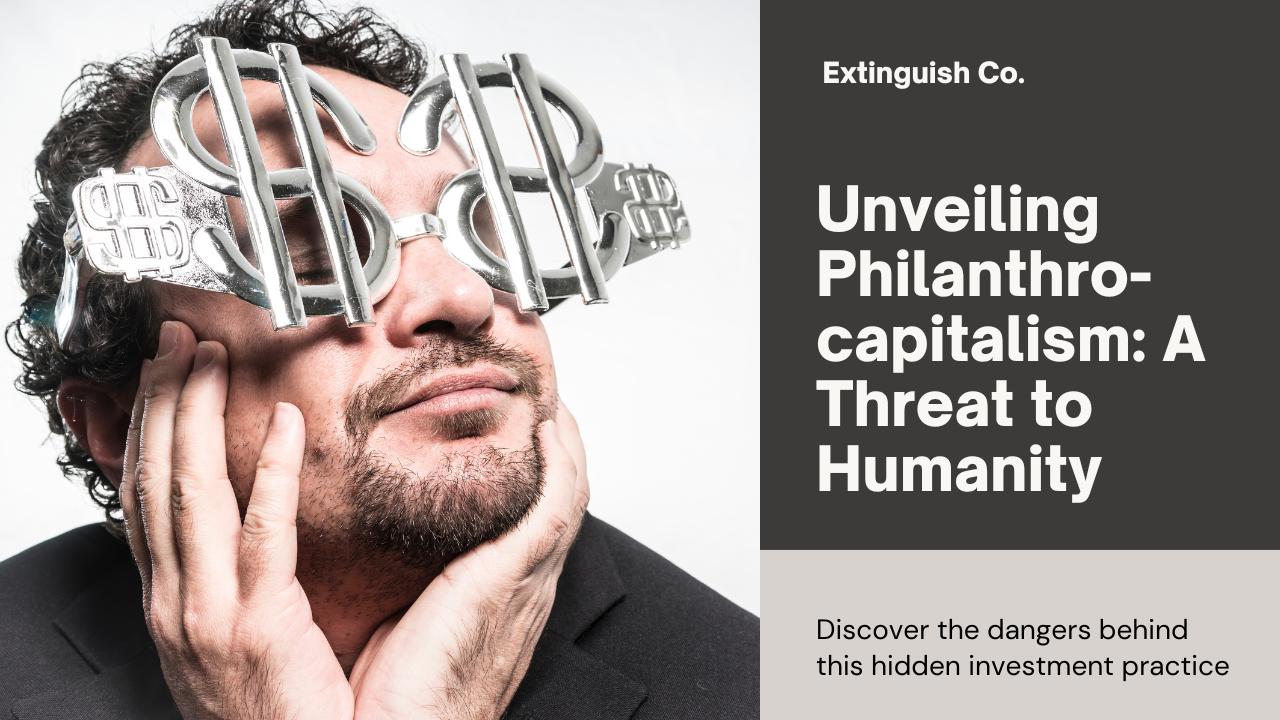Guest Columns
CHAPTER 25: Philanthrocapitalism and Collectivism – Space Is No Longer the Final Frontier—Reality Is (forthcoming release July 2024)

Globalism is a replacement ideology that seeks to reorder the world into one singular, planetary Unistate, ruled by the globalist elite. The globalist war on nation-states cannot succeed without collapsing the United States of America. The long-term strategic attack plan moves America incrementally from constitutional republic to socialism to globalism to feudalism. The tactical attack plan uses asymmetric psychological and informational warfare to destabilize Americans and drive society out of objective reality into the madness of subjective reality. America’s children are the primary target of the globalist predators.
ERISA and the rise of third-party investors
In order to fully comprehend the scope of the planned globalist assault on your children’s minds, it is helpful to review Norman Dodd’s 1982 interview with G. Edward Griffin, and Dodd’s stunning 1954 Report (Chapter 9). You will recall that Norman Dodd was appointed Director of Research of the Reece Committee to investigate tax-exempt foundations and determine if their activities could justifiably be labeled un-American. Dodd examined the recorded minutes of the Carnegie Corporation’s board meetings and discovered how tax-exempt foundations in America, since at least 1945, had been operating to promote a hidden agenda. The foundations’ real objectives were to influence American educational institutions and control foreign policy agencies of the federal government in order to condition Americans to accept world government. The government was to be based on the principle of collectivism (socialism) and ruled by the same interests that control tax-exempt foundations.
Twenty years after the Dodd Report, in 1974, Congress passed and President Gerald Ford signed into law the Employee Retirement Income Security Act (ERISA). Steve J. Sands explores its seismic societal consequences and reviews the history of third-party investment management in America in his previously referenced article, “Who Owns Corporate America?“[i] Prior to 1980, most investments were made directly by each corporation. Sands asks, “What changed around 1980 to make the market shift toward third-party investment management?” The answer is fascinating:
In 1974 The Employee Retirement Income Security Act (ERISA) was passed. One of the elements of ERISA was that it made it clear that companies could use third-party investment management. Hence the rise of third-party investment management by companies like BlackRock, State Street and Vanguard Group. BlackRock was founded in 1988. Vanguard was founded in 1975. While State Street was founded in 1792 [as Union Bank], it created the Standard & Poor’s Depositary Receipt (SPDR) in 1993. State Street’s SPDR 500 (SPY) Trust exchange-traded fund (ETF) was the first of its kind, and they are now one of the largest ETF providers worldwide. Trading on SPY began January 29, 1993. ETFs are widely used for mutual fund investments by third-party investment companies. The clear demarcation from direct to third-party investment management was the passage of ERISA.
It is interesting to note that while ERISA’s intent was to fix pension problems [crisis], one of the solutions was to introduce the allowance of third-party investment firms. The report from the WEF states:
With economic and demographic fundamentals promoting ever faster growth in institutional assets since around 1980, the stage was set for the emergence of the modern asset management industry.
The founding of the Big Three: BlackRock, Vanguard and State Street
Sands provides an incisive timeline of events chronicling the shift from direct investment to third-party investment management, and its acquisition of controlling interests in America’s publicly held companies:
Timeline
- 1965/1967: Vance Hartke introduces and Jacob Javits sponsors Pension Reform bills
- 1971: World Economic Forum founded
- 1972: Documentary Pensions: The Broken Promises aired
- 1974: Jacob Javits main architect of ERISA
- 1974: Gerald Ford became President with Nelson Rockefeller as Vice President
- 1974: Ford signs ERISA into law
- 1975: Vanguard founded
- 1988: BlackRock founded
- 1993: State Street created SPDRs
- Today: BlackRock, Vanguard, and State Street together have a 20% ownership in American’s S&P 500 and Fortune 1000 companies
Under the heading “Wash, Rinse, Repeat,” Sands concludes with a reflection on philanthrocapitalism (discussed just below) and its application of the Hegelian dialectic for social change at work. Philanthrocapitalism manifests the never let a crisis go to waste axiom invoked by political figures from Winston Churchill, to Saul Alinsky, to the Obama Administration’s Rahm Emanuel.
As with other crises we have seen in the last 50 years, this [pension] crisis takes on the same formula:
1). Take advantage of a problem;
2). Gain public support through the media;
3). Present a solution through passage of legislation.
4). The legislation has secondary consequences not known by the public at large. Thereby, another crisis does not go to waste.
Philanthrocapitalism – capitalism working for the supposed public good
The 1954 Dodd Report exposed the hidden agenda of tax-exempt foundations, including the Carnegie Corporation. In 2006 the agenda was given a name by an editor at The Economist magazine, Matthew Bishop. He named it philanthrocapitalism—capitalism working for the good of mankind. Bishop’s ideas were expanded into a book he co-wrote with Executive Director of the Social Progress Imperative, Michael Green, Philanthropic Capitalism: How the Rich Can Save the World.[ii] The title’s deceitful self-description is the marketing strategy for selling the sinister philanthrocapitalism to an unsuspecting public.
An extremely informative analysis of philanthropic capitalism written by University of Essex, UK, sociologists Linsey McGoey, Darren Thiel, and Robin West was published in Politix, Volume 121, Issue 1, January 2018, pages 29–54. “Philanthrocapitalism and crimes of the powerful“[iii] concludes with an instructive summary of the humanitarian hoax of philanthropic capitalism:
Sometimes new social practices solidify as tolerable and even admirable so quickly that people forget that, not long before, those same practices were seen as unacceptable or even harmful—and the philanthrocapitalism movement provides one such example. Until recently, the idea that personal profiteering is naturally ‘philanthropic’ for the wider community and inevitably beneficial to humankind was a laughable proposition. Today this has changed, and the concept of philanthrocapitalism is being hailed across the political spectrum as a laudable way to improve human welfare, and, in just over 10 years, the notion of philanthrocapitalism has evolved from a derided fringe philosophy to a powerful ‘gospel’ of wealth….
The novelty of our approach has been to document the role that philanthrocapitalists play in proselytizing a gospel of market munificence. We have shown that what is really new about the ‘new’ philanthropy is not the comparative magnitude of new giving practices, but the structure of giving, and particularly the worrying and likely harmful enlargement of the sphere of entities, public or private, that are deemed as deserving charity. These structural changes have enabled organizations such as the Gates Foundation to use comparatively small ‘gifts’ in order to command widespread public allegiance and even reverence—smothering demands for corporate accountability and higher taxes. Old metaphors about the ‘vampire-like’ tendencies of capitalists have missed the most important thing to remember about vampires: they are most dangerous when circulating in disguise among the living, offering a warm smile that conceals their darker being.
The Sands Timeline above reveals how the pension crisis provided public support for passage of ERISA in 1974, and resulted in a seismic economic paradigm shift away from capitalism toward managerialism in America today. The economic shift reflects a wider philosophic shift away from individualism and laissez-faire capitalism based on private ownership, competition, free trade, self-reliance, self-interest, and the principles of supply and demand. The movement toward managerialism is a gargantuan leap toward collectivism, where the ruling managerial elite, not individuals, determine the course of one’s life through Environmental, Social, and Governance (ESG) metrics that include diversity, equity, and inclusion (DEI).
Philanthrocapitalism leads to philanthropathy
In response to the deceit of philanthrocapitalism, a new word is finding its way into the lexicon. A philanthropath is a psychopath masquerading as a philanthropist. Beware the philanthropath!
From Pundicity.com; appears by arrangement – Ed.
References
[i] Who Owns Corporate America?; https://stevenjsands.com/who-owns-corporate-america/
[ii] Philanthropic Capitalism: How the Rich Can Save the World; Matthew Bishop and Michael Green, Bloomsbury Press; Reprint edition, 2009; https://archive.org/details/philanthrocapita00matt
[iii] Philanthrocapitalism and crimes of the powerful; https://www.cairn-int.info/abstract-E_POX_121_0029–philanthrocapitalism-and-crimes-of-the.htm?contenu=article
Linda Goudsmit is the devoted wife of Rob and they are the parents of four children and the grandparents of four. She and Rob owned and operated a girls’ clothing store in Michigan for forty years before retiring to the sunny beaches of Florida. A graduate of the University of Michigan in Ann Arbor, Linda has a lifelong commitment to learning and is an avid reader and observer of life. She is the author of the philosophy book Dear America: Who’s Driving the Bus? and its political sequel, The Book of Humanitarian Hoaxes: Killing America with ‘Kindness’, along with numerous current affairs articles featured on her websites lindagoudsmit.com and goudsmit.pundicity.com. The Collapsing American Family: From Bonding to Bondage and her new release, Space Is No Longer the Final Frontier––Reality Is, complete Linda’s quadrangle of insightful books that connect the philosophical, ideological, political, and psychological dots of globalism's War on America and individual sovereignty.
Linda believes the future of our nation requires reviving individualism, restoring meritocracy, and teaching critical-thinking skills to children again. Her illustrated children’s book series, Mimi’s Strategy, offers youngsters new and exciting ways of solving their problems and having their needs met. Mrs. Goudsmit believes that learning to think strategically rather than reacting emotionally is a valuable skill that will empower any child throughout his or her life. Plus, in Linda’s words, “I have yet to meet the child who would prefer a reprimand to a kiss.”
-

 Accountability3 days ago
Accountability3 days agoWaste of the Day: Principal Bought Lobster with School Funds
-

 Civilization17 hours ago
Civilization17 hours agoWhy Europe Shouldn’t Be Upset at Trump’s Venezuelan Actions
-

 Executive2 days ago
Executive2 days agoHow Relaxed COVID-Era Rules Fueled Minnesota’s Biggest Scam
-

 Constitution3 days ago
Constitution3 days agoTrump, Canada, and the Constitutional Problem Beneath the Bridge
-

 Christianity Today17 hours ago
Christianity Today17 hours agoSurprising Revival: Gen Z Men & Highly Educated Lead Return to Religion
-

 Civilization2 days ago
Civilization2 days agoThe End of Purple States and Competitive Districts
-

 Executive1 day ago
Executive1 day agoWaste of the Day: Can You Hear Me Now?
-

 Civilization4 days ago
Civilization4 days agoThe Conundrum of President Donald J. Trump








